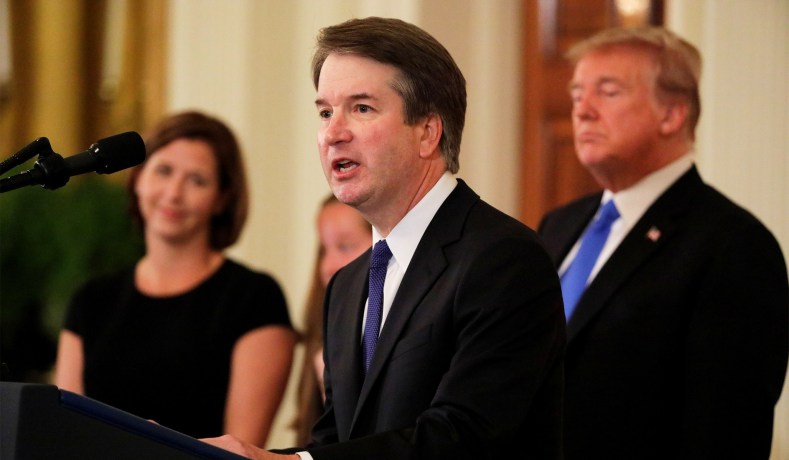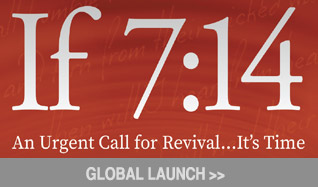President Donald Trump has nominated Judge Brett Kavanaugh of the United States Court of Appeals for the District of Columbia Circuit to be our next U.S. Supreme Court Justice.
But who is this man, and what’s his record on issues that matter to people of faith?
Kavanaugh, 53, is a Yale grad and practicing Catholic who played a key role in both the impeachment of President Bill Clinton and the investigation into the suicide of Clinton aide Vince Foster. He eventually joined the White House staff of President George W. Bush, who appointed him to his current position on the D.C. Appeals Court.
Over the last 12 years on the bench, Kavanaugh has established himself as an intelligent, well-respected, and often-cited judge, with over 300 issued opinions. His qualifications to serve as a Supreme Court justice are clearly established. A full analysis of his record on every issue would take books to detail, therefore we urge your prayers for Iowa’s U.S. Sen. Chuck Grassley, who is chair of the Senate Judiciary Committee and will be instrumental in Kavanaugh’s confirmation hearings.
For this article, however, we will limit examination of Kavanaugh’s record to three top issues: Religious liberty, judicial activism, and the right to life. On these issues, the summary is positive, but mixed: Kavanaugh has been a powerful champion of religious liberty; he has shown a clear, constitutional understanding of the role of the judiciary; and his record on abortion is promising, but unclear.
Religious liberty
While in private practice, Kavanaugh served as Chairman of the Federalist Society’s Religious Liberty Practice Group, and on the bench, his record on religious liberty has been outstanding.
For example, in Priests for Life v. HHS, Kavanaugh voted to invalidate the Obama administration’s contraception mandate because it violated the rights of religious organizations. He argued it is “crystal clear” that “when the Government forces someone to take an action contrary to his or her sincere religious belief … the Government has substantially burdened the individual’s exercise of religion.”
And last year, Kavanaugh dissented from his court’s ruling that the Washington, D.C., transit authority could ban religiously themed advertisements, including a Christmas ad. He called the policy “pure discrimination” and “odious” to the First Amendment.
Judge Kavanaugh has also defended the traditional role of religion and prayer in the public square, vigorously arguing in Newdow v. Roberts for the constitutionality of prayers at government ceremonies and the phrase “so help me God” in the Presidential Oath of Office. He further suggested that “stripping government ceremonies of any references to God or religious expression … would, in effect, ‘establish’ atheism.”
Kelly Shackelford, president and CEO of First Liberty Institute, has concluded that Kavanaugh “has been committed to the Constitution and religious liberty for a long time.”
Judicial activism
In the world of law, there is a divide between those who see the U.S. Constitution as a “living document” that must be interpreted according to the times and those who insist the Constitution be interpreted according to its original intent.
The “living document” perspective has given rise to judges “discovering” new “rights” not defined in the Constitution, such as the recent Iowa Supreme Court, which used the “living document” argument to concoct a “right” to abortion in the Iowa Constitution. Critics of this viewpoint accuse judges of “legislating from the bench” and “judicial activism,” since the basis for their rulings cannot be found in the words of the Constitution itself.
On the other hand, the leading figure of the latter perspective is President Ronald Reagan’s former Attorney General Edwin Meese III, who has argued the original intent of America’s Founding Fathers, rather than modern opinion, must hold sway when interpreting the Constitution.
Meese has praised Kavanaugh, calling the judge “an originalist who is faithful to the Constitution.”
Kavanaugh, in fact, stated in a 2016 lecture, “The judge’s job is to interpret the law, not to make the law or make policy. So read the words of the statute as written. Read the text of the Constitution as written, mindful of history and tradition. Don’t make up new constitutional rights that are not in the text of the Constitution. Don’t shy away from enforcing constitutional rights that are in the text of the Constitution.”
Abortion and the right to life
Judge Kavanaugh’s record on abortion is less certain.
On one hand, he has resisted government promotion of abortion. In Garza v. Hargan, Judge Kavanaugh rejected the ACLU’s assertion of a new constitutional right for illegal-immigrant minors in U.S. custody to obtain immediate abortion on demand. He emphasized the government’s “permissible interests in favoring fetal life” and “refraining from facilitating abortion.”
On the other hand, whether or not he would assert an unborn child’s right to life under the 14th Amendment is unknown. There is no certain way to predict how he would rule on a direct challenge to Roe v. Wade or if he would be willing to overturn an established precedent.
Nonetheless, Sarah Pitlyk of the Thomas More Society – which is defending Iowa’s “Heartbeat” Law in state court – has compared Kavanaugh to other leading judges and praised President Trump’s choice.
“On the vital issues of protecting religious liberty and enforcing restrictions on abortion, no court-of-appeals judge in the nation has a stronger, more consistent record than Judge Brett Kavanaugh,” Pitlyk said. “He has repeatedly taken conservative stands and fearlessly defended his textualist and originalist philosophy.”
The U.S. Senate appears poised to move on Kavanaugh’s nomination quickly. An anticipated timeline puts Senate judiciary hearings in late August with a confirmation vote possible in mid-September. This would allow Kavanaugh to be seated and in place on Oct. 1, the first day of the Supreme Court’s next term.



